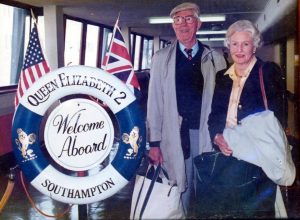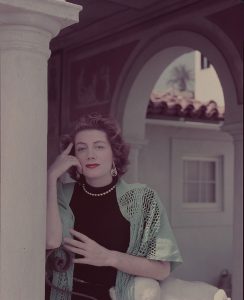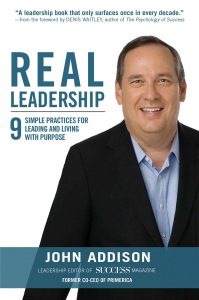
Bulletin #93 - Mar 2016
Mr. Churchill & Mr. Lincoln
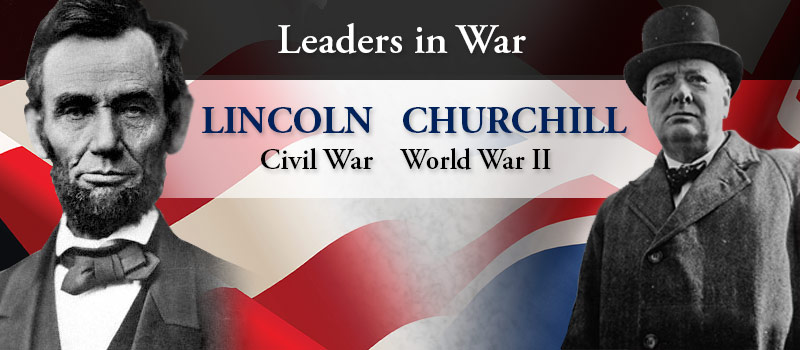
February 26, 2016
LEWIS LEHRMAN Analyzes Two Great War Leaders
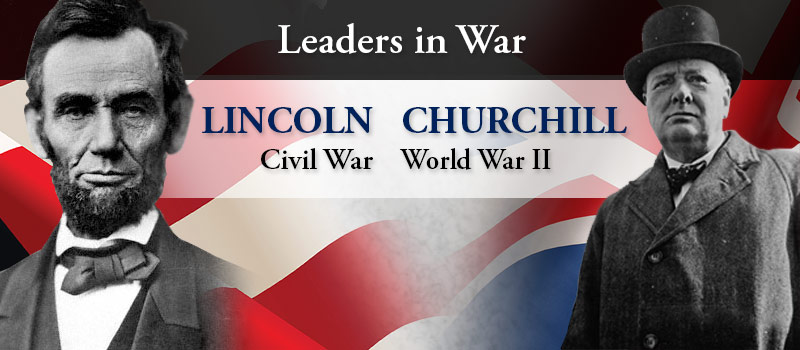
Author and Lincoln Scholar Lewis Lehrman discusses with the Chartwell Bulletin his forthcoming studies comparing Sir Winston Churchill with Presidents Abraham Lincoln and Franklin D. Roosevelt.
CB: How did your interest in Churchill begin?
LL: My interest in Churchill began in early boyhood. I was born in central (rural) Pennsylvania in August of 1938. The radio was then widespread. I remember the latter part of the Second World War when I was five, six, and seven. My family would listen to reports, on the radio, of the battlefield struggles in Europe. Churchill was a hero in our family. He still is.

2024 International Churchill Conference
CB: You were good friends with Churchill’s official biographer Sir Martin Gilbert. What did you learn from him, and what is your assessment of his contribution to the historical record?
LL: He was introduced to me by Larry Arnn, now President of Hillsdale College and editor of the authorized Churchill biography. Larry was previously at the Claremont Institute, where Churchill was the exemplar of the great statesman—the symbol of the great-souled man. I learned from Sir Martin Gilbert to be “slave to the facts.” This was his standard, a very difficult one to uphold. I do allow my opinions more leeway than the great Sir Martin, but he was certainly one of the one of the best historians of the twentieth century. Who else could have written a three-volume history of the twentieth century, a history of a vast subject upon which one could rely? His contribution is inestimable. In him, Clio the muse of history, found honor, duty, truth. So, too, with Larry Arnn, his successor.
CB: How did your interest in Lincoln begin?
LL: I was born near the Gettysburg Battlefield. I visited the battlefield from the age of ten, and there learned the storied struggle of the blue and the gray, the triumph of Lincoln, the abolition of slavery, the reunion of the great republic. Above all, I learned that in Mr. Lincoln the crisis of the republic found its moral and battlefield resolution.
CB: You have written several books about Lincoln. What aspects of his life and career intrigue you the most?
LL: Mr. Lincoln’s life and career demonstrate that in America all things are possible for him or her who capitalizes the advantages of freedom, the open society, and possesses the grit and determination, come what may, to live a life to be remembered as an important contribution to America.
CB: Your next book will be Churchill and Lincoln: War Leaders. What compelled you to write this study?
LL: Mr. Churchill and Mr. Lincoln were war leaders called upon to save their countries, Churchill to save England and civilization from Nazi Germany, Lincoln to save the American Union and to abolish its most profound defect, slavery. Mr. Churchill was 5 ft. 6. Mr. Lincoln was nearly 6 ft. 4, and with his top hat over 7 feet. Size is not linked to heroism.
CB: What similarities as war leaders do you believe Churchill and Lincoln shared?
LL: The primary similarity between Mr. Churchill and Mr. Lincoln, as war leaders, was their self-confidence to chart the strategy of the war, to suffer setbacks without giving up, to sustain the union in Lincoln’s case and the British nation in Churchill’s case, come what may. Each held himself responsible for the outcome of the war, no matter the odds. They never believed that the generals could fight it without their guidance. In my opinion, they were correct.
CB: What do you believe are the key differences between Churchill and Lincoln as war leaders?
LL: Mr. Churchill was more self-absorbed than Mr. Lincoln, but Mr. Churchill was himself an intrepid warrior as a young man. He knew war up close, and the special bravery front line soldiers must possess. Mr. Lincoln was more deliberate, more self-contained. Mr. Lincoln was more patient with his generals, but equally decisive as Churchill, in the event failing generals must be replaced.
CB: You are also writing a book to be called Churchill, Roosevelt, & Company: Wartime Studies in Character and Statecraft. What more about this well-documented relationship do you hope to tell readers?
LL: I discuss not only the differences and similarities of Churchill and Roosevelt, but I choose some key men (the Company), who made the Anglo-American alliance work effectively; for example, Harry Hopkins, Averell Harriman, Anthony Eden, and Lord Beaverbrook, among others. I also considered failed members of the “Company,” such as Joseph P. Kennedy, Ambassador to the Court of St. James in the early stages of the war. I considered carefully the Bretton Woods agreement, John Maynard Keynes of the UK, and Harry Dexter White of the US, financial members of the “Company,” and why and how this 1944 Bretton Woods agreement was an integral part of the war and post-war aims of the Anglo-American alliance. I look briefly at the role of Russia in the alliance, but especially at the role of Soviet spies in general, within the Roosevelt administration, and the role of the senior US Treasury official Harry Dexter White—revealed by overwhelming evidence to be a Soviet spy at the highest levels of FDR’s administration.
CB: Churchill, Roosevelt, and Lincoln all faced the challenge of leading democracies during major wars. This involved balancing their need to achieve victory with the constitutional limits imposed upon them and the rights guaranteed to the citizens of their countries. How well do you believe each man handled this responsibility, and what can today’s leaders learn from their example?
LL: Both Churchill and Lincoln performed brilliantly with respect to the civil rights of their citizens, considering that these were wars of national survival. Roosevelt, too, performed this task well. However, FDR has been severely criticized for the internment of Japanese citizens in California. Generally speaking, each of the three leaders set a good example of doing what was necessary to achieve victory in a war of national survival, without unduly constraining their citizens (compare wartime Germany and Russia). Of course, there were violations of peacetime civil rights by Churchill, Roosevelt, and Lincoln. But as General William T. Sherman said: “War is hell.”
CB: Why do you think people continue to be drawn to the example of Lincoln, Churchill, and Roosevelt?
LL: Lincoln and Churchill, especially, are revered not only because they were great leaders in wars of national survival, but because among other virtues, they were great writers and great speechmakers. Mr. Lincoln’s prose, in the whole history of the English language, as used among statesmen, is only equaled by that of Mr. Churchill. Mr. Roosevelt wrote very little, did not like to write, even did not like to leave behind a written record. He did, however, give some inspiring speeches. People are drawn to these three men because of their heroic examples in defense of national survival and a free and open society.
Mr. Lehrman’s forthcoming books will publish in 2016 and 2017 and will be reviewed in Finest Hour.
Subscribe
WANT MORE?
Get the Churchill Bulletin delivered to your inbox once a month.
